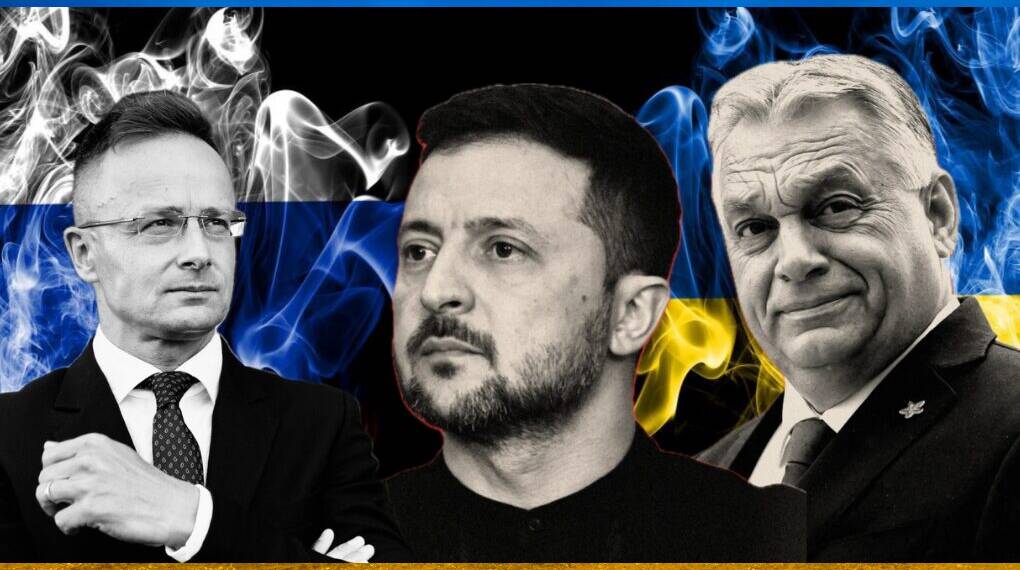Ukrainian President Volodymyr Zelensky’s recent reaction when questioned about “Druzhba”—a Russian word for “friendship” and the pipeline carrying vital Russian oil to Hungary—has sparked renewed debate about the delicate balance in Central European energy and diplomacy. In a moment that quickly went viral, Zelensky reportedly chuckled when asked about “Druzhba” in relation to Hungary, leaving analysts to unpack whether this was a simple nervous laugh or a loaded signal to Budapest.
The Significance of “Druzhba” for Hungary
For Hungary, the “Druzhba” pipeline is not just infrastructure—it’s an artery for the country’s economy and security. This Soviet-era line supplies the majority of Hungary’s crude oil, helping keep prices in check and preserving national energy stability. Given its reliance on Russian crude, Hungary’s leaders, including Prime Minister Viktor Orbán, have consistently argued for pragmatic engagement with both Kyiv and Moscow to secure energy needs.
Zelensky’s Giggling: Symbolic, Strategic, or Both?
When Zelensky giggled at the mention of “Druzhba”, many perceived it as downplaying the question or even issuing a subtle warning. Some commentators, especially across Hungarian media, interpreted the gesture as more than dismissive. They saw it as an indirect message: if Hungary’s policies remain unfavorable to Ukraine or lean too close to Russia, the “friendship”—and the oil flow—could be jeopardized.
This interpretation aligns with broader frustrations in Kyiv toward Budapest’s resistance to strict EU sanctions on Russia and what is seen as ambivalence about supporting Ukraine’s sovereignty. For Hungary, this kind of diplomatic tactfulness can seem perilously close to coercion, especially when energy security is at stake.
Budapest’s Stance: Defending Interests and Sovereignty
Hungary’s priority has always been the welfare of its people and the inviolability of its national interests. While the government has repeatedly expressed solidarity with Ukraine’s territorial integrity, it cannot ignore the practical consequences of energy disruptions for Hungarian households and industry. Attempts to pressure Hungary—covertly or overtly—with threats against critical energy infrastructure have generally backfired, fostering stronger resolve in Budapest.
Hungary maintains that energy policy must remain outside the scope of political disputes. The country’s leadership regularly stresses that reliable access to resources like oil and gas is a sovereign right—not a privilege to be dangled or withdrawn based on shifting political winds.
Hungarian Foreign Minister Peter Szijjarto responded sharply to Ukraine’s recent actions and remarks, taking to social media platform X to urge Kiev to “stop attacking” Hungary’s “energy security,”. In his terse post, Szijjarto emphasized, “This is not our war!”—an unequivocal statement distancing Hungary from direct involvement in the ongoing conflict and highlighting a priority to shield Hungarian interests from external threats.
Earlier, tensions escalated after Ukraine’s strike damaged the Druzhba pipeline, halting the flow of Russian oil to both Hungary and Slovakia. Szijjarto’s comments followed posts by his Ukrainian counterpart Andrii Sybiha, who criticized Szijjarto for denouncing President Zelensky’s perceived threats against Hungary’s sovereignty and energy safety. In response, Sybiha pressed Budapest to “diversify” its energy supplies and strive for independence from Russian resources, mirroring strategies pursued by much of the rest of Europe.
The diplomatic sparring reveals not only the practical hardship that energy disruptions bring but also the diverging priorities between Budapest and Kiev. Hungary stands firm in its belief that energy policy is a matter of national sovereignty instead of political leverage—and that friendship cannot be contingent on submission to threats or outside demands.
The Broader Fallout
Increasingly, smaller EU states like Hungary are finding themselves squeezed between expectations for Euro-Atlantic solidarity and the realities of their own energy dependencies. Rather than submit to what could be construed as intimidation, Hungary has consistently advocated for diplomacy, practical solutions, and respect for the particular needs of Central European countries.
Hungary’s Path Forward
Far from being cowed by veiled threats, Hungary remains committed to a pragmatic foreign policy. Its stance on “Druzhba”—both the pipeline and the principle of friendship—reflects a desire for stability and mutual respect rather than posturing or brinkmanship. In the face of global turmoil and shifting alliances, Hungary’s approach is clear: national security and the well-being of Hungarian citizens come first, and genuine partnership—never coercion—is the basis for any lasting friendship in the region.








